Album review: Tangible grief colours Foo Fighters’ But Here We Are
After the shock death of longtime drummer Taylor Hawkins, frontman Dave Grohl processed the loss the only way he knows how: by throwing himself headfirst into the creative process.
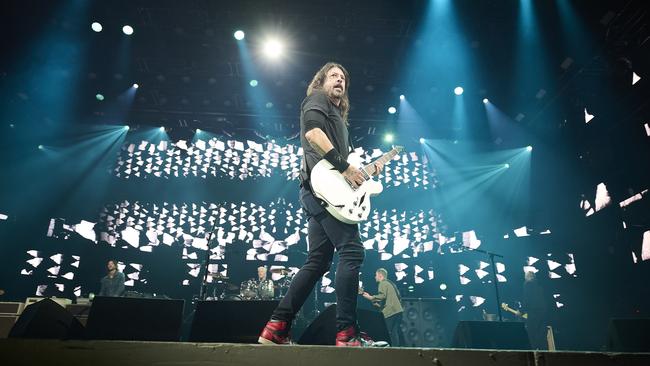
Album reviews for week of June 16 2023:
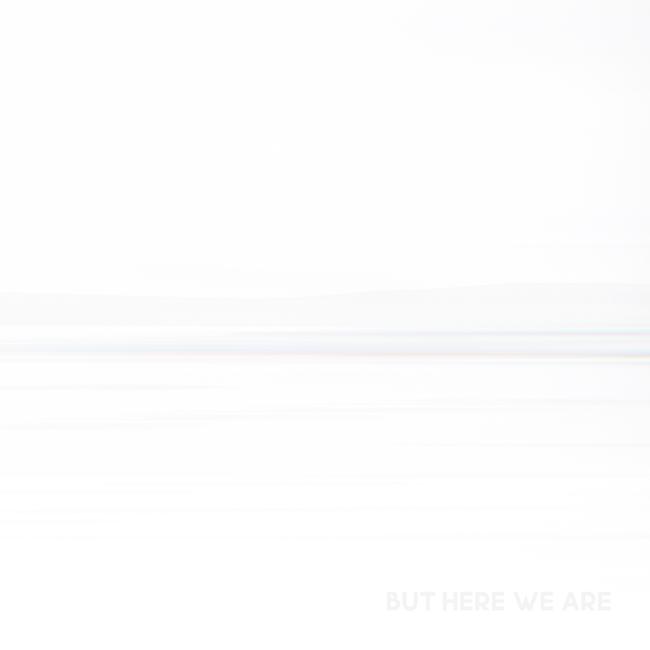
ROCK
But Here We Are
Foo Fighters
Roswell Records/Sony
The years 1994 and 2022 were meant to be big with touring for Dave Grohl. Instead of performing around the world with the bands that made him a household name, however, his life was altered forever with the sudden loss of a beloved bandmate. In both scenarios – with the passing of Nirvana’s Kurt Cobain and Foo Fighters’ Taylor Hawkins, respectively – Grohl processed grief the only way he knew how: throwing himself headfirst into the creative process. The first time around resulted in the 1995 debut by Foo Fighters, then a solo project from Grohl that would morph into one of the world’s biggest rock bands within the decade. This time, this tangible grief has taken shape in But Here We Are, the band’s 11th album. While the ghost of Grohl’s departed friend was mostly alluded to on the eponymous LP, it’s very much within the room on every song here. The band’s trademark high-octane alt-rock shines through on choice cuts such as Nothing At All and second single Under You, but it’s the sonic departures and outright detours that will come to shape how this album is viewed within the greater Foo Fighters oeuvre. Show Me How sees the group take on an understated dream-pop sound that pairs Grohl’s lower range with lush harmonies from his daughter Violet. It’s the most quiet and pensive Foo Fighters has sounded since the second disc of its 2005 double album In Your Honor, with its emotional resonance ringing out in equal measure to the guitar feedback.
More telling is The Teacher: at 10 minutes, it is the longest Foos song ever committed to record – and, in turn, it takes listeners on a journey befitting its length. Imagine the seven stages of grief being torn open with a triple-pronged guitar attack, and you’re part of the way there. The rest can only truly be explained through sitting with the song in its entirety – something you’ll want to do time and time again. In December, when announcing that Foo Fighters would continue, its statement offered the caveat that it would be “a different band going forward”. But Here We Are isn’t necessarily a reinvention of the proverbial wheel; it’s a celebration of the fact that it can still turn round and touch ground after such a crushing tragedy. Not only is it the best album the band has made since 2011’s garage-dwelling revival Wasting Light, it’s a showing of its most unified front since then, too. Without wishing to speak on behalf of someone who can no longer speak for themselves, you can instead vividly imagine the late Hawkins being incredibly proud of what his bandmates created in his honour.
David James Young

POP
King of a Land
Yusuf/Cat Stevens
BMG/Dark Horse
The singer-songwriter born Steven Demetre Georgiou has had a somewhat capricious music career since bursting on to Britain’s pop scene of the swinging sixties as Cat Stevens. He peaked in the early 1970s with a trilogy of classic albums — Tea For the Tillerman, Teaser and the Firecat, and Catch Bull At Four — that yielded such meaningful and memorable songs as Father and Son, Wild World, Morning Has Broken and Peace Train. Since then, however, the output of the artist now also known as Yusuf has been relatively sparse and largely centred on Islam, the religion to which he converted in 1977. Now, at 74 and seemingly out of the blue, Yusuf/Cat is embracing and proselytising Christianity. Biblical references and shallow invocations are scattered throughout King of a Land, alongside characteristically humanitarian thoughts. Save a couple of stripped-back acoustic tracks, his 17th album is equally overbearing musically, with excessive arrangements and orchestration.
Tony Hillier
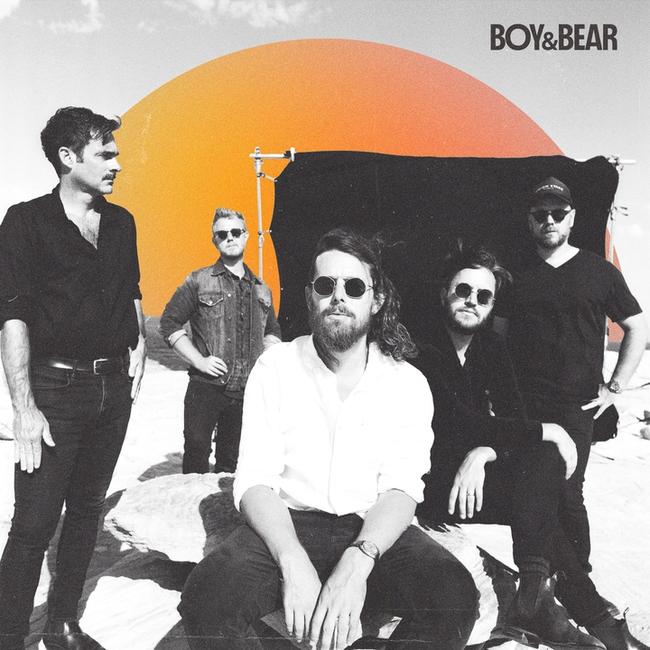
INDIE ROCK
Boy & Bear
Boy & Bear
Independent
To slightly tweak a quote by the late entrepreneur Jim Rohan: “Your band doesn’t get better by chance; it gets better by change.” Such appears to be the philosophy of Sydney Indie-folk darlings turned rock adventurists Boy & Bear, as they trade acoustic guitars for synths on a bold, self-titled fifth LP. Having built a devoted fanbase off the back of four-part harmonies over feel-good folk-rock, the quintet’s 2019 effort Suck on Light presented a sonic crossroads of sorts. Thankfully, the ambient textures of that previous effort are more fully developed here, with frontman David Hosking soaring ethereally above the dreamy State of Flight and Magnus, the latter of which sees saxophone return to the sonic palette. Some of the arrangements err on the side of overindulgence, especially the closing duo Hostage and The Wheel. However, these are growing pains from a band that appears as determined as ever not to be pigeonholed. This isn’t the group’s best album, but it’s undoubtedly its most adventurous.
Alasdair Belling
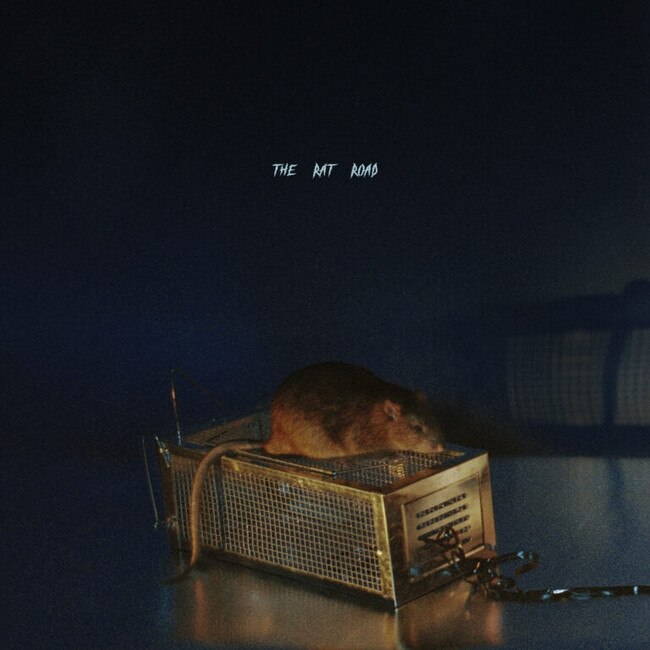
ELECTRONIC
The Rat Road
SBTRKT
Save Yourself/AWAL
In the seven years since his last release, British musician Aaron Jerome has channelled his life experiences into an album seeking to balance “determination and hopelessness”. Multiple genres, changing tempos and sonic mood swings fuelled by diverse vocal performances make The Rat Road an entertaining, if somewhat disjointed, electronic foray. Bookended by the orchestral splendour of Remnant and the warbling beauty of closer I See A Stair, Jerome revels in quick-shift sensory assaults, where synth lines collide with lush live instrumentation, outerworldly effects, and glitchy beats. One never knows where the inventive producer is heading; that’s exciting, but at 22 tracks long, cohesion is sacrificed. Waiting sees Teezo Touchdown sing over chugging, low-slung beats, while there’s an 80s throwback vibe on the beautiful Limitless, anchored by swirling synths and the vocals of Leilah and Sampha. Toro y Moi pops up amid stuttering beats on Demons, as well as on the driving Days Go By, where he combines with fuzzy, building synths for an album standout.
Tim McNamara
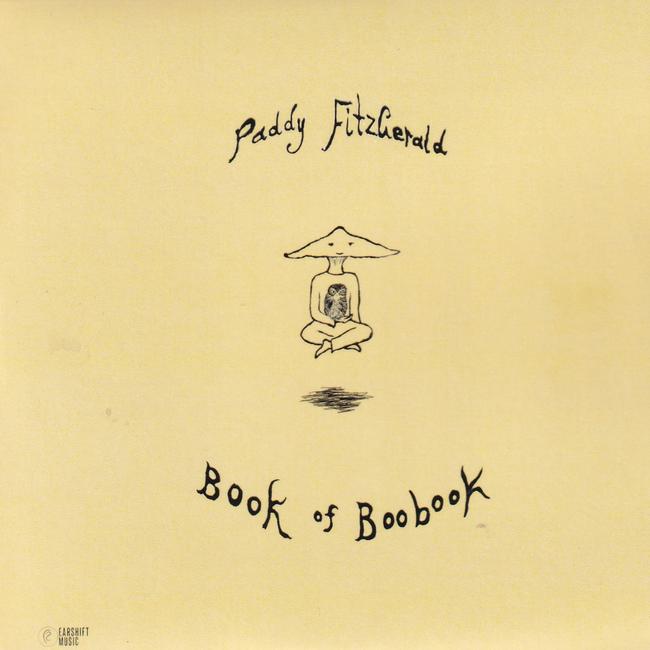
JAZZ
Book Of Boobook
Paddy Fitzgerald
Earshift Music
This is an unusual and very different debut album, which I found completely captivating. Double bassist Paddy Fitzgerald leads an excellent Melbourne quartet with alto saxophonist Tom Noonan, explosive drummer Lewis Pierre-Humbert, and pianist Max Teakle, with Brennan Hamilton-Smith playing bass clarinet on two tracks. One of the album’s strengths is Fitzgerald’s compositional vision which is said to explore “the threshold between consonance and dissonance”. These elements have long existed in modern jazz but Fitzgerald adds interest by positing the influence of the composer Ravel, which will fascinate musicologists. The album’s other chief strength is the extraordinary playing of Teakle. His touch on the piano is superb and he’s beautifully recorded, enabling his sound to cut through strongly. Teakle’s rhapsodic style, his inventive comping, and technique to burn when required, all suggest a brilliant career ahead for a musician aged 20 when this was recorded. The album’s title reflects Fitzgerald’s growing up in the Byron Bay area, where the Boobook owl is found.
Eric Myers
Album reviews for week of June 9 2023:

POP
Broken By Desire To Be Heavenly Sent
Lewis Capaldi
Universal
Feed ChatGPT the prompt “write a song about heartbreak” and you’ll get a good approximation of most of Lewis Capaldi’s lyrics. It’s hard to think of another musician whose personality is more at odds with the music they produce than this Scottish crooner. Online, and as captured in his Netflix documentary, How I’m Feeling Now, he’s a self-mocking, crass Glaswegian who has described himself as a “fat gimp” with “the best nipples in the game”. You wouldn’t think it when listening to his music, which wallows in the muck of inane realisations, weepy imagery and clunky epigrams. In interviews ahead of the release of this second album, Broken By Desire To Be Heavenly Sent, 26-year-old Capaldi has said that he had “no artistic desire to go off and reinvent myself”. True to the word, he has stuck to the formula of his 2019 debut — the similarly wordily titled Divinely Uninspired to a Hellish Extent — and plodded out another collection of vague songs about heartbreak and being in love. Capaldi has a superb, gravel-submerged-in-molasses voice he’s capable of stretching into big, belted notes. This much is evident in the single, Wish You the Best, a grounded and vivid piano ballad about an all-consuming break-up.
The less effective Pointless, an Ed Sheeran co-write, is cathartic in all the expected ways, with lyrics that read like someone took a bar of soap to the mouth of Ian Dury (“I bring her coffee in the mornin’ / She brings me inner peace / I take her out to fancy restaurants / She takes the sadness out of me”). Wish You the Best retreads the kind of piano-driven, radio-primed rock ballads the likes of Snow Patrol and The Fray churned out in the early 2000s, while lachrymose ballad Leave Me Lonely, produced by renowned Swedish hit maker Max Martin, climaxes with an ill-advised Guitar Hero solo. Capaldi is at his most interesting and ambitious on ninth track The Pretender, a full-bodied song that sees him reckon with the impostor syndrome brought on by his success (“I’m an impostor, my head is a mender / I’m the pretender, what can I tell ya”). In his documentary, there’s an infuriating and revealing exchange between the artist and his manager, Ryan Walter; after Capaldi plays him a new song, the first response from the manager is to baldly ask his singer-songwriter client the most cliched of questions: “Is it a hit single?” Listening to this album, you can’t help but get the feeling Capaldi is being stifled by risk-averse industry moguls, with the results rarely more than middling.
Geordie Gray
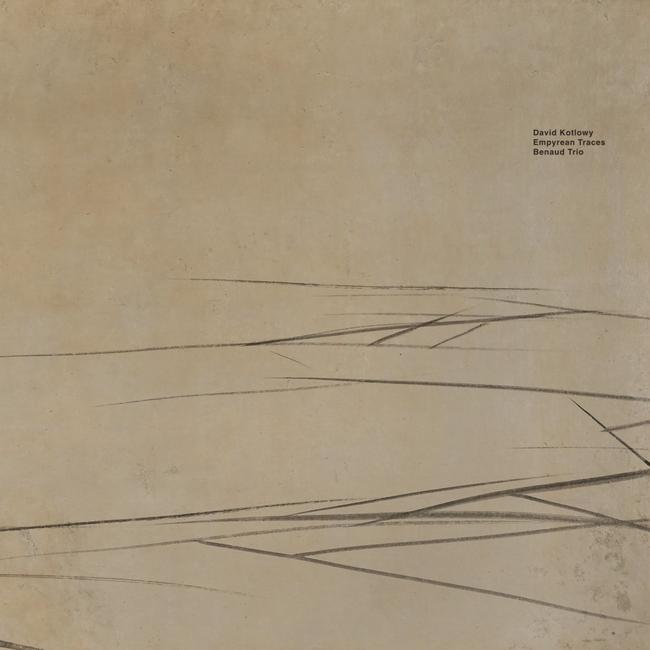
CLASSICAL
Empyrean Traces
Benaud Trio
De la Catessen Records
With ideas drawing from Morton Feldman and John Cage but infused with Japanese aesthetics, David Kotlowy is both a continuer and combiner of tradition. His music is sparse and esoteric while at the same time highly personal; fragilely so, in its extreme sensitivity to sound and restraint. The three pieces on this album — all exquisitely performed by Benaud Trio — span the greater part of his composing career, from Chromatic Traces (1996) to Under Stars (2000) to the 2021 title work. Comprising gentle wisps of sound from violin, cello and piano that slide delicately over each other, these pieces have a meditative stillness and a quality of confiding sincerity. Despite the intense slowness of all three compositions, interest never wanes but is rather heightened by the unpredictability with which notes appear and disappear, making it impossible to guess what happens next. Benaud Trio have their hearts and minds right in the music. There are special joys here.
Graham Strahle
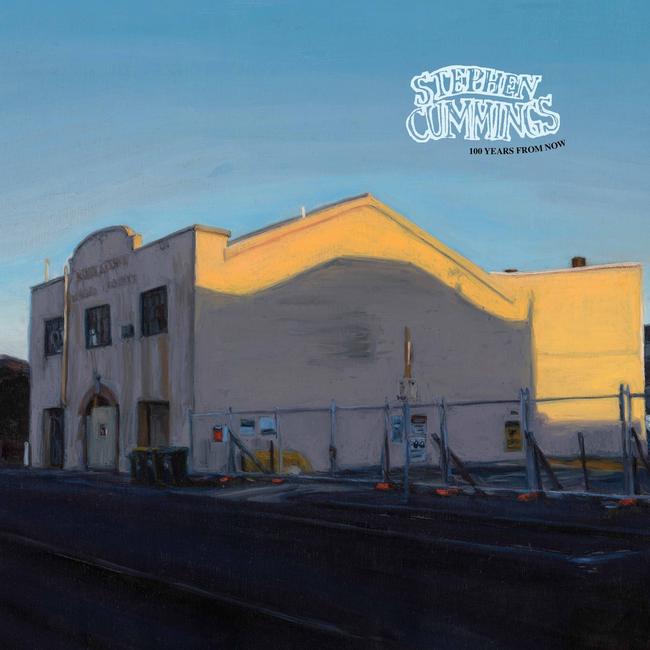
FOLK/COUNTRY
100 Years From Now
Stephen Cummings
Cheersquad
As the frontman for Melbourne rock band The Sports, Stephen Cummings contributed punchy, charismatic vocals to singles like 1978’s Who Listens to the Radio before launching a multi-decade solo career. His voice has markedly changed on his first album since suffering a stroke in March 2020, showing a deeply vulnerable side to a musician and songwriter who always projected natural confidence. His struggle to find a new way of singing – and the added challenge of rehabilitation during lockdown – stands front and centre on the autobiographical 100 Years From Now. Yet this is a document of perseverance rather than defeat. On the touching What a Silly Thing, Cummings savours the fact that he’s still here and learning, while the title track notes the fleeting nature of suffering. Made with close collaborator Robert Goodge, the album features members of The Triffids and Underground Lovers, among others. It’s a cheering – and richly deserved – show of solidarity.
Doug Wallen
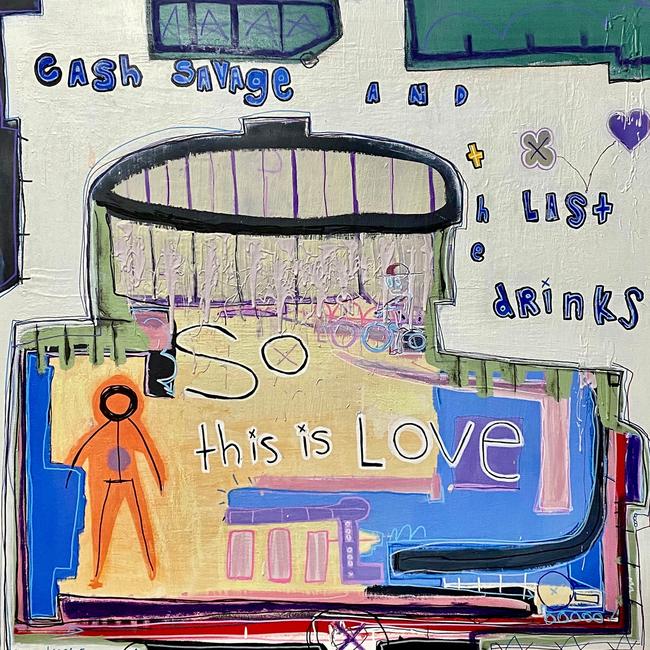
ROCK
So This Is Love
Cash Savage and the Last Drinks
Mistletone Records
Don’t come to So This Is Love looking for an easy ride. Written in the wake of Cash Savage’s marriage break-up and a mental breakdown, So This Is Love is an album streaked with grief. It’s challenging, with the Melbourne songwriter’s intensely personal lyrics detailing the hardest moments of her life: on I Want To Be Everyone, she admits that “I’ve got a fantasy that I can be everything you need”. At the end of the near seven-minute opener, Cash wrenches her voice to croak out, “I’ve got a big love / Can’t hold it / Can’t fold it”. Her presence has never been more powerful: the vocals punch through and then slip away, buoyed by the grit of her Last Drinks bandmates. The shaking anger of Push — with its helter-skelter guitars and vocals chanting the refrain of “I’m not feeling too hot today” — is one of the best depictions of depression you’ll ever hear. Despite the lack of a question mark at the end of the title, Savage doesn’t claim to have finally figured out the way through love’s pain. This is an album that knows love can be cruel and unfair – but also, crucially, the greatest and most joyous part of our lives.
Jules LeFevre
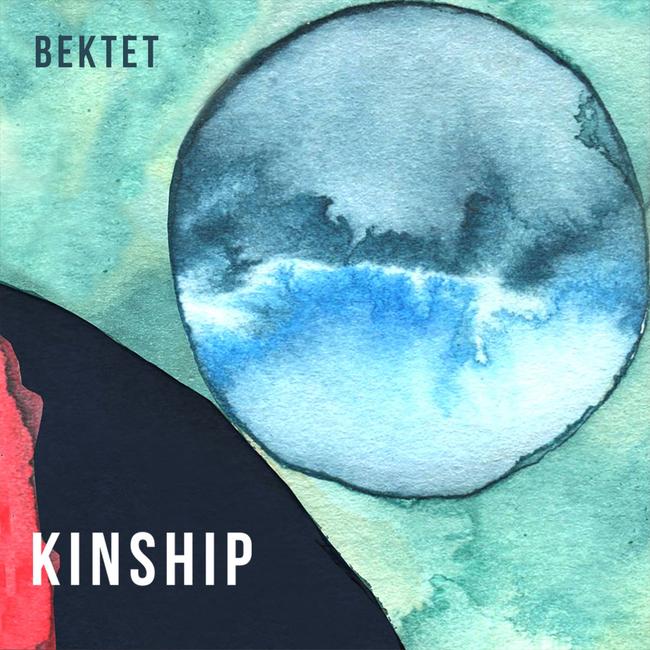
JAZZ
Kinship
Bektet
Independent
I like this album very much, having come to regard it, after extensive hearing, as freewheeling, fearless and full-blooded. The music is brimming with youthful enthusiasm, but at the same time it’s grounded in a good balance between high energy and what one might call rumination, providing the album with the sort of variety that is essential to a satisfying jazz experience. Leader tenor saxophonist Jared Becker is a musician who is not afraid of understatement; pianist Matt Steele is adventurous enough to go beyond normal cliches; and extroverted drummer Lewis Pierre-Humbert is completely alive to the evolution of modern jazz drumming to this day. Plaudits also to the other two musicians in this brilliant Melbourne quintet, Harry Tinney (guitar) and Angus Radley (double bass). Becker’s seven compositions are melodically attractive and cleverly constructed, with thoughtful bridging sections that contribute to the album’s overall variety. All in all, I detect a strong philosophy as to how jazz should sound, and a sure-footed implementation of that vision.
Eric Myers


To join the conversation, please log in. Don't have an account? Register
Join the conversation, you are commenting as Logout